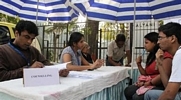Dyslexia is a disability that affects one in five children. Sally Shaywitz is a neuroscientist who is co-director of the Yale Center for the study of Learning and Attention and is one of the leading researchers on the topic of dyslexia.
According to Shaywitz, dyslexia is defined as difficulty in learning to read, when the person has the motivation to learn, has good intelligence, and has been properly instructed or taught. It is not that the person who has dyslexia is unwilling to learn, or that they are unable. Dyslexia is not a disorder of the unwilling or lazy. As a matter of fact, it usually occurs in people of average to above average intelligence.
Also according to Shaywitz, dyslexia can be detected at a very early age. Dyslexia is not, as many people believe, simply reading words backwards or reversing the order of some letters. It is a learning disability that has a neurological origin. This fact is supported through the Shaywitz research. Dyslexia is often characterized by poor spelling and decoding abilities as well as inaccurate or non-fluent word recognition. Shaywitz' research shows that those parts of the brain that most people use for decoding and reading, do not function the same way in people with dyslexia.
The Dangerous Misconception
It has been said by Shaywitz, "dyslexia represents a paradox, particularly in our society where reading ability is often taken as a proxy for intelligence and it is assumed that if you are a good reader you are also highly intelligent and if you struggle to read you must not be so smart. Dyslexia violates that assumption because people who are dyslexic are both highly intelligent and struggle to read." As you can see from this quote, Shaywitz is trying to get across the fact that dyslexia is not synonymous with unintelligent.
The misconception that dyslexic people are substandard intellectually, leads many dyslexics to not reach their full potential. If people were more open to the idea that dyslexia is a real learning disability and that many people suffer from this particular disorder, the stigma could disappear and many dyslexics could then pursue the necessary treatment options to overcome their disability.
Depending on your child's age when they are diagnosed with dyslexia, you may have already developed a way of thinking when it comes to your child's intelligence. If you perceived your child as less than intelligent or as lazy earlier in their school career and they have recently been identified with dyslexia, you may have to rethink the way you approach your child in terms of their school work. As frustrating as your child's school performance has been to you, it is important to remember that your child probably was trying. They were just unable to perform the work at the level you (or the school) expected. Express to your child, that you understand and you may not have been fair to them on your interpretation of their grades. Your child, now with the proper guidance and redirection, not only has the possibility to meet your expectations, but also needs to know that they have your acceptance and understanding.
As you can see, Dr. Shaywitz dyslexia research has shown that there is hope and help for the dyslexic. We simply have to have patience and apply the lessons we have learned about this disability.



